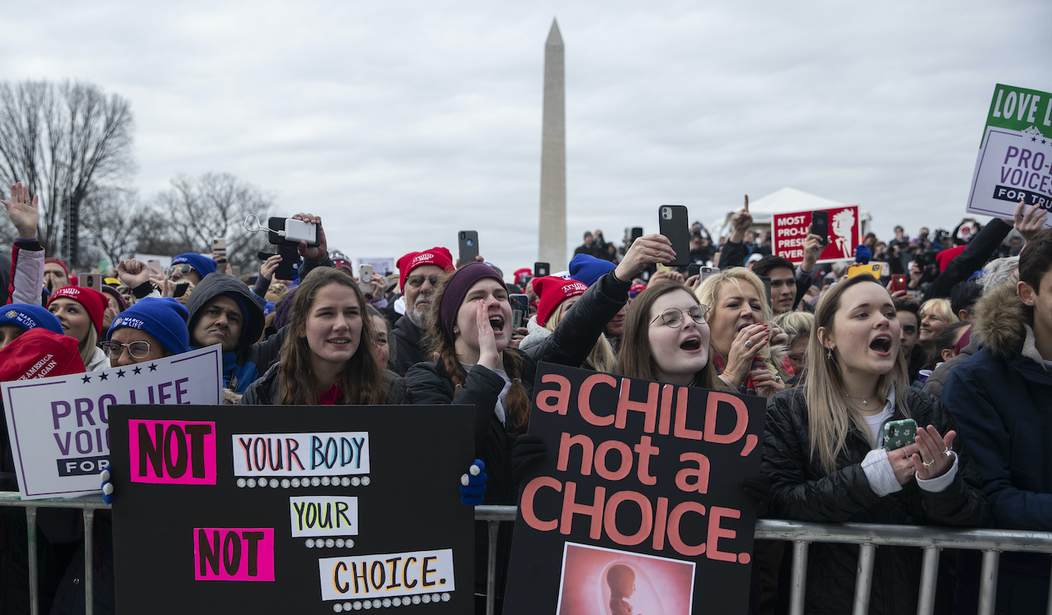Shortly after midnight on Thursday, it was reported that the U.S. Supreme Court had released its decision not to block a Texas law which bans abortion based on when a fetal heartbeat is detected, usually around six weeks. It was a 5-4 decision, with Chief Justice John Roberts voting with the more liberal justices.
The ruling is 5-4.
— SCOTUSblog (@SCOTUSblog) September 2, 2021
Thomas, Alito, Gorsuch, Kavanaugh & Barrett vote not to block the law.
Chief Justice Roberts joins the three liberals (Breyer, Sotomayor & Kagan) in dissent.
Madeline had reported that the Supreme Court had allowed the law to go into effect on Wednesday when it did not act after pro-abortion activists requested that the Court prevent the law from doing so.
As Madeline wrote:
Additionally, the measure allows private citizens to pursue legal action against anyone who provides an abortion, helps someone access an abortion, or clinical staff who assist an abortion after the six-week threshold. There is one exception in the bill that allows for abortions later in pregnancy, strictly for “medical emergencies.”
In a filing with the Supreme Court, Texas officials responded to an emergency appeal requested by abortion providers and advocacy groups. Texas officials described their claims as “hyperbolic” and said “they have not shown that they will be personally harmed by a bill that may never be enforced against them by anyone.”
The law was allowed to go into effect on the day indicated by the bipartisan law signed by Gov. Greg Abbott (R-TX) in May due to the Court failing to act. However, a decision was subsequently released outlining more detail.
Recommended
When it comes to the Texas law, the Court decided the matter on a procedural point, on application for injunctive relief, rather than on the merits:
The application for injunctive relief or, in the alternative, to vacate stays of the district court proceedings presented to JUSTICE ALITO and by him referred to the Court is denied. To prevail in an application for a stay or an injunction, an applicant must carry the burden of making a “strong showing” that it is “likely to succeed on the merits,” that it will be “irreparably injured absent a stay,” that the balance of the equities favors it, and that a stay is con- sistent with the public interest.
...
In reaching this conclusion, we stress that we do not purport to resolve definiively any jurisdictional or substantive claim in the applicants’ lawsuit. In particular, this order is not based on any conclusion about the constitutionality of Texas’s law, and in no way limits other procedurally proper challenges to the Texas law, including in Texas state courts.
Roberts has ruled with the liberal justices before on abortion cases. In the 2020 decision of June Medical Services, LLC v. Russo, Court ruled that Louisiana law was found to be in violation of Planned Parenthood v. Casey, which dictates there could not be an "undue burden" for women seeking abortions.
The Louisiana law requiring abortion facilities to meet ambulatory standards and for abortion providers to have admitting privileges at local hospitals was unconstitutional.
June Medical was virtually identical to the 2016 case of Whole Woman's Health v. Hellerstedt. Roberts thus based his vote on precedence.
At the time of the 2020 decision, the satirical site The Babylon Bee mocked such a reason for his vote.
— Rebecca Downs (@RebeccaRoseGold) September 2, 2021
Courts have previously blocked similar heartbeat laws from going into effect, as it would be in violation of Roe v. Wade. As a result of the 1973 decision, along with Doe v. Bolton, the United States is one of the most relaxed countries in the world on abortion. The nation is one of just seven countries that allows for elective abortions past 20-weeks.
In reaction to the law going into effect on Wednesday, the White House recommitted to a Biden-Harris campaign promise that the administration would commit to codifying Roe into law.
The Supreme Court will also hear oral arguments in Dobbs v. Jackson, a Missippi law that prohibits abortions after 15-weeks gestation, a limit which is mainstream in Europe.
The release of this decision has many speculating with even more certainty that a majority of justices will rule in favor of upholding that law.
Get ready for 6-week abortion bans in every red state in the country. Roe is effectively dead.
— Brian Tyler Cohen (@briantylercohen) September 2, 2021
The Senate Democrats who choose to defend the filibuster and prevent a bill codifying Roe from becoming law are complicit in what the GOP is doing right now.
Every single Republican-run state is going to do exactly what Texas did and the Supreme Court just let it happen. Roe v. Wade is dead.
— No Lie with Brian Tyler Cohen (@NoLieWithBTC) September 2, 2021
Not surprising. Roe is as good as dead. https://t.co/ymmAyiiTvn
— Joy-Ann (Pro-Democracy) Reid ?? (@JoyAnnReid) September 2, 2021
Pro-abortion advocates have already bought into the line of thinking from Justice Elena Kagan in her dissenting opinion that "because of this Court’s ruling, Texas law prohibits abortions for the vast majority of women who seek them—in clear, and indeed undisputed, conflict with Roe and Casey."























Join the conversation as a VIP Member